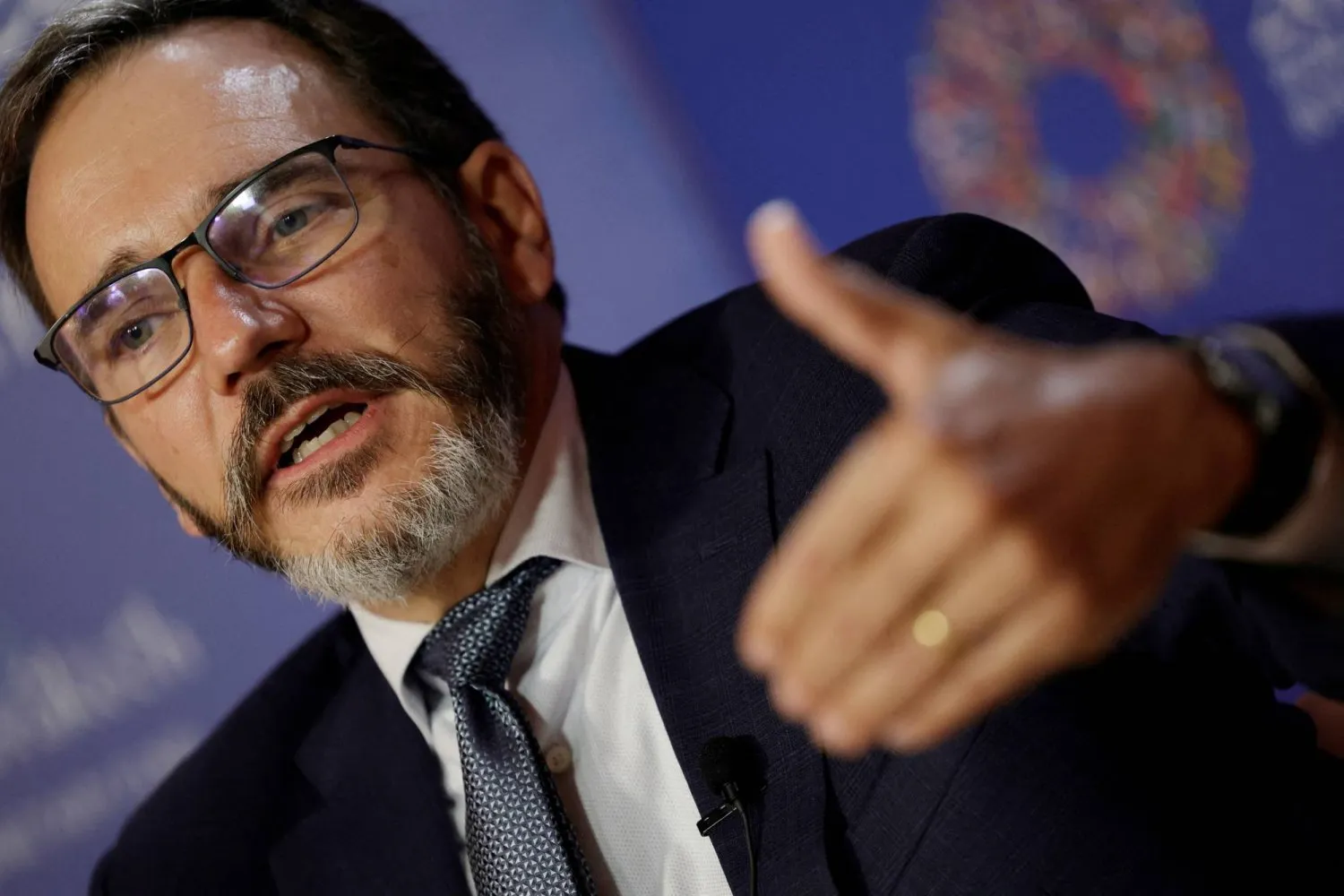China's industrial policy may be tipping the scales in some specific industries, but it is not the root cause of the country's growing exports and external surpluses, IMF chief economist Pierre-Olivier Gourinchas told Reuters.
In an interview at the start of this week's IMF and World Bank annual meetings, Gourinchas pushed back on some of the US-driven narrative surrounding China's excess industrial capacity, saying that macro factors including a lack of domestic demand in China and excess consumption in the US are the key drivers of higher Chinese trade surpluses.
Gourinchas said the increased exports from China, which are helping to keep the country's growth from slowing further, according to new IMF forecasts, are “not primarily because of industrial policies in China or elsewhere. It's mostly driven by macro forces.”
The biggest of these is low consumer spending which, amid a property market crisis that has damaged a key source of household wealth, has caused some production to be “naturally channeled towards the export sectors,” he added.
Conversely, US trade deficits are rising because of high demand from strong household and government spending, causing an overall increase in demand for imported goods from China.
China's weak demand and strong US demand “is a configuration that is going to give rise to these types of imbalances,” the IFM chief economist explained.
Gourinchas and fellow senior IMF officials recently made similar arguments in a blog post on the Fund's website.
They said that while China's subsidies do have an impact on trade spillovers on specific sectors, these effects are “modest, suggesting that industrial policies have a limited effect on aggregate external balances.”
This view differs somewhat from arguments made by US Treasury Secretary Janet Yellen.
She has spent much of this year raising alarms about the threats to US manufacturing jobs from Chinese overcapacity, particularly in electric vehicles, batteries, solar cells and semiconductors, all of which were hit with steep US tariff hikes last month.
Last week, Yellen told a Council on Foreign Relations event that every province in China is competing to try to invest more in these industries.
“So the level of subsidization is utterly enormous. There are many profit-losing firms that are kept in existence,” Yellen said, adding that this was leading to a “gigantic amount of overcapacity.”
Gourinchas said there are some sectoral impacts from Chinese subsidies that can distort trade, but that was a matter for the World Trade Organization.
He added the IMF was working hard to measure the impact of industrial subsidies in China and other economies with dominant state sectors, but transparency has been difficult.
Support measures, he said, are not often line items where one can see exactly what the government is spending.
The way to reduce US-China imbalances is to boost domestic demand to soak up the production now being diverted to exports, Gourinchas said.
This would require Chinese authorities to resolve problems with the property sector that are dragging down consumer confidence, he added.
“Then, you need to convince the Chinese households and firms that they can do more consumption and more investment and less saving,” Gourinchas said. “That requires, for instance, developing social safety nets that will provide for old age, that will provide for healthcare etc.”
For the US, fiscal tightening would help slow excess demand for imports from China. The Fund has long advocated that Washington raise taxes to put its debt on a downward path.









